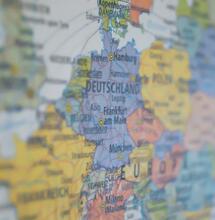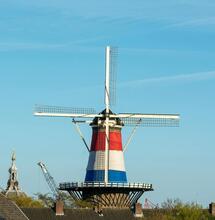Legal Cannabis in Washington State, Three Weeks after Implementation

The first attempts at legal pot implementation in WA have fallen short of the efforts displayed in Colorado at the beginning of 2014.
The first attempts at legal pot implementation in WA have fallen short of the efforts displayed in Colorado at the beginning of 2014.
|
Map of legal Cannabis across the United States [Credit: WikiMedia Commons/Lokal_Profil] |
Unlike in Colorado, Washington state's new Cannabis policies are facing a steep uphill battle. Whereas business owners and potential customers in Colorado have enjoyed relatively easy access to plenty of weed, with only long queues to hinder their purchases, shop owners, growers and consumers have encountered far more shortages and bureaucracy in Washington.
Not all areas of the state have agreed to allow legal Cannabis retail, in a move similar to that of the Netherlands, where several provinces have adopted a 'zero option' ban on pot shops. The Washington state regions that have green-lighted marijuana retailers must follow a slew of bureaucratic measures in order to provide pot to adults aged twenty-one and up. The proposed rules are listed on the Washington State Liquor Control Board (WSLCB) website.
Valid consumers will be permitted to purchase up to an ounce (28.35 grams) of actual Cannabis; those wishing to avoid smoking may buy up to sixteen ounces (453.6 grams) of weed-infused edibles. Purchases of liquid-form, Cannabis-enhanced products are acceptable up to seventy-two ounces (ca. 482 grams). For this to occur, the state had to issue licenses to those requesting the ability to sell legal weed to recreational users.
As of the beginning of the second week of July, the WSLCB had accepted 334 applications and twenty-four shops opened on Tuesday, July 8th. Many applicants had not yet received approval due to failing to pass final investigations. More shops may receive a green light as the initial implementation phase is reviewed.
|
This is the logo that will denote approved Cannabis products in Washington state [Credit: AP/Washington state Liquor Control Board] |
Regulatory Roadblocks
Twenty-five licenses were issued on Monday, July 7th. The following day, sales began in only a handful of shops, introducing the voter-approved legal Cannabis industry under a heavy cloud of high prices, limited supply and substantial taxes. These licenses had been applied for within a time window that was open from November 18th through December 20th, 2013. The WSLCB website outlined the licensing process:
A marijuana license is an endorsement on your Business License issued by the Washington State Department of Revenue (DOR) Business Licensing Service. You must complete the Business License Application even if you already have a Business License, along with a Liquor Control Board Marijuana Addendum.
If you are forming a corporation or limited liability company (LLC), you must register with the Washington Secretary of State's (SOS) office before filing an application with BLS. The Washington State Liquor Control Board (WSLCB) will not issue a license to a corporation or LLC that is not registered with the SOS. Be sure to include the UBI number issued by the SOS for all license applications and filings.
Demand Outweighs Supply
The issue of supplying legal pot shops plagues business owners in Washington state, as it does in the similarly-run industry in Colorado. However, Washington's woes are even more troublesome due to the low number of accepted, licensed retailers and growers. For example, the only licensed outlet in Seattle ran out of product a mere three days after their ribbon-cutting.
In addition to the typical travails surrounding such an enterprise - including sourcing safe, clean products from reputable growers, testing said product for quality, labeling and inventory for transparency of informing customers and authorities, preventing robberies en route to the shop and after the product has reached the retail point, etc. - some Washington business owners have been experiencing a sharp discord between supply and demand. The few licensed growers supplying recreational Cannabis to licensed retailers are facing difficulties in keeping up with the high-volume demand of too many interested adults looking to buy from too few shops and processors. It is not uncommon for shops to run out of product, either per strain or occasionally even completely draining their stocks. Retailers and producers must scan the barcoded goods into the state-wide system, and the latter must quarantine orders for twenty-four hours before delivery.
|
Infused edible products, such as this display in the window of Northwest Patient Resource Center in West Seattle, will become more accessible [Credit: Steve Ringman/The Seattle Times] |
Along with weed, hash and concentrates, edible products are also in short supply. On the eighth of July, Seattle-based Db3 Inc. received the first processing license in the state for producers of edible Cannabis products. Trading under the name Zoots, the company will produce pot-infused drinks and confections and will be joined by two other companies, although the latter did not yet have kitchens that met industry standards and approval at press time.
Labeling and packaging standards for the edible weed industry were released to the public on July 16th, determined by the WSLCB. Baked goods were deemed acceptable for retail but candies, such as lollipops, did not make the list of approved products due to the assumption that such items would prove too appealing to children.
While some shops were touting introductory prices of around ten dollars per gram, limited supplies prompted drastic, immediate price shifts of double that or more. Some expect prices to plateau at around thirty dollars per gram. On the upside for retailers, such high costs will net recreational pot shops at least twice the profit currently achieved by the state's medical marijuana dispensaries, which are governed by far less stringent regulation - although a medical card is necessary to purchase pot products at such establishments.
The Rich Get Richer
One of the main complaints reaching the media from the residents of WA is that the licensing process and maintenance fees are simply too costly for 'regular' people to afford. This has led to a near-corporatization of legal pot in Washington, as only wealthy proprietors have been able to both secure a license and construct pot shops according to the state's expensive implementation process and regulations. There is also a noticeable lack of pot shops in less thriving communities.
In addition to a disparity between the economic status of pot shop owners, it is becoming clear that artificially-inflated prices (due to shortages and high demand) have largely mooted one of the true ideologies behind legal Cannabis sales. Black market buds, sold by both domestic growers/dealers and cartels, continue to offer lower, more attractive prices for their illicit products.
Fired for Purchasing Legal Pot
Although Cannabis is now legal in WA, not all employers are happy about it. In fact, adults wishing to purchase and partake in legal weed must face being fired for their off-hours recreational choices. Mike Boyer, a security firm worker, was captured by KXLY cameras on the inaugural day of Washington's legal sales purchasing four grams of Sour Kush at the Spokane Green Leaf pot shop. The network then filmed him at home, consuming his legally-purchased stash.
In an interview with the New York Daily News, Boyer revealed that a client of his former security firm employer recognized him as a contractor associated with the company, who ordered Boyer to submit to a urinalysis. The THC test showed a positive result and Boyer was fired.



